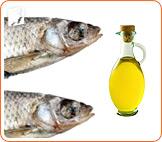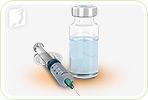Fish, a staple in many diets, is consumed worldwide because of it is high in protein, vitamins, minerals, and essential fatty acids. Fish has several health benefits such as reducing cardiovascular disorders, premenstrual syndrome (PMS) and menopause symptoms, risk for stroke, and improving memory loss and mood.

Mood swings are one of the most common symptoms of menopause. These frequent changes from states of depression to euphoria can lead to many other inhibiting conditions. Additionally, mood swings can put a strain on personal and professional relationships, as well as your overall health and well-being.
Why Eat Fish during Menopause?

Fish oil supplements have been sold in shops for many years as a way to help alleviate depression and mood swings. Fish is rich in omega-3 fatty acids that act as a mood enhancer. The brain needs this nutrient to maintain health and functionality. The body cannot produce this nutrient, so it's important to consume foods like fish that are high in essential fatty acids. Although fish oil supplements and others containing essential fatty acids are readily available and effective, it is best to get the nutrients directly from fish.
What Is the Best Fish for Alleviating Mood Swings during Menopause?

Sardines are rich in omega-3 fatty acids and vitamin D. The essential fatty acid helps boost your mood, and combination of the two nutrients procures acetylcholine which improves brain health and performance. Mackerel, salmon, trout, herring, and tuna are also great sources of omega-3s and other essential fatty acids.
More about Reducing Menopausal Mood Swings
The most important thing to remember about food is that there are stressors and supporters for the body. Fish is great for brain performance and is a staple to every diet across the world. In Eastern Asia, particularly Japan, there have been studies that find women suffer less from menopause because of their high consumption of soy and fish.
Always remember that there are many ways to help reduce mood swings. By incorporating a diet rich in essential vitamins and nutrients, you can see a positive impact on many aspects of your health, including your menopause symptoms. Dietary changes, along with getting enough exercise and taking herbal supplements, can help significantly with menopause symptom management. Click on the link below to learn more about menopausal mood swings.
Sources
- Amin, Zenab, Turhan Cnali, and C. Neill Epperson. "Effects of Estrogen-Serotonin Interactions on Mood and Cognition." Behav Cogn Neurosci Rev 2005; 4; 43.
- Dr. Love, Susan, and Karen Lindsey. Dr. Susan Love's Menopause and Hormone Book. New York: Three Rivers Press, 2003.
- Molecular Psychiatry. (n.d)."Estrogen Promotes Gender Difference in Brain's Response to Stress." Molecular Psychiatry. Retrieved from www.psycheducation.org.
- The Health Center.(n.d)."Adult Mood Swings." Retrieved from www.thehealthcenter.info.



